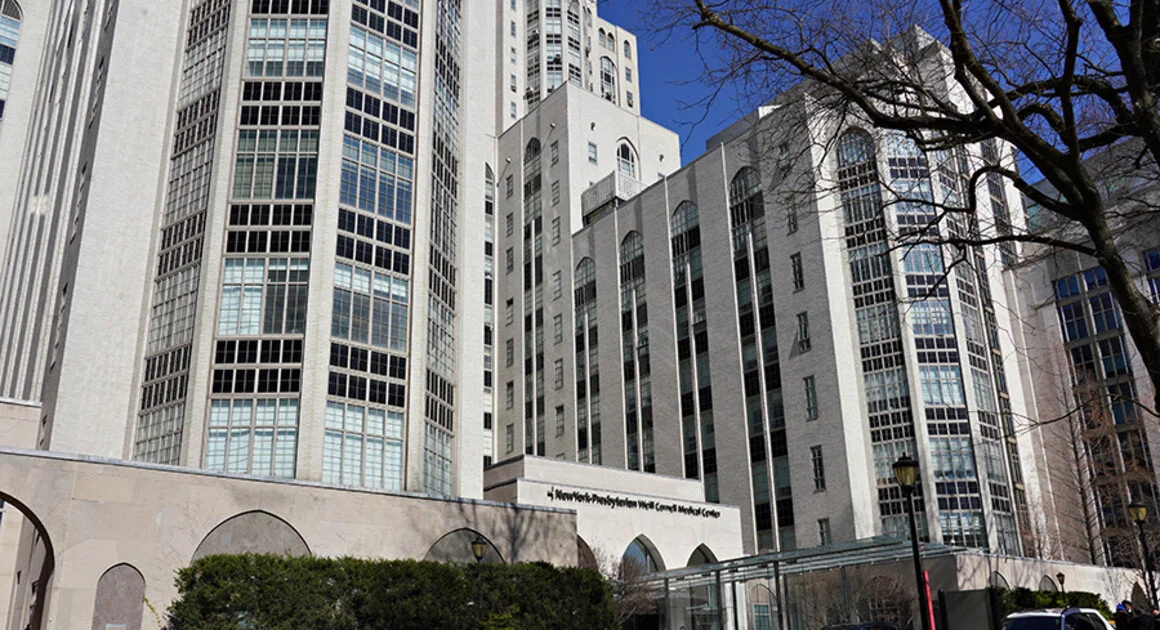32BJ severs ties with NewYork-Presbyterian
A powerful labor union has made good on its 2018 promise to defect from NewYork-Presbyterian over rising health care costs and is recruiting legislators to help it fight one of the main roots of pricing opacity.
32BJ SEIU, the property service workers union that provides benefits to nearly 200,000 people in the Northeast region, decided this month to drop NewYork-Presbyterian from its network starting Jan. 1, 2022, because the fund paid, on average, 358 percent more than Medicare for the same services across the hospital system's facilities, said Sara Rothstein, director of the 32BJ Health Fund.
The union's health fund is self-insured, meaning it pays a flat rate to its third party administrator, Empire BlueCross BlueShield, to negotiate contracts with health systems and offer them to purchasers, like the union, then pays out the claims, Rothstein said. The set-up allows 32BJ to save on premiums and better manage health care spending, which takes up more dollars for employers every year.
Rothstein and her team of analysts are able to mine the aggregated claims data and see what they paid, though not how the rate was set by the care provider. The findings indicated NewYork-Presbyterian was charging union members a significant markup for the same procedures compared to other city hospital systems.
The average cost of bariatric surgery, a weight-loss procedure, at New York City hospitals is $41,742. At NewYork-Presbyterian, the cost exceeded $51,000, according to the union’s analysis. An outpatient colonoscopy at most hospitals cost $3,638, while NewYork-Presbyterian charged $8,991, the union found.
“We can’t continue to pay higher prices for care we can get somewhere else,” she said.
The union also offers programs that encourage members to seek care for specific procedures at preferred hospitals, and keeping NewYork-Presbyterian in network would jeopardize that benefit, Rothstein said.
For example, a union member would be encouraged to get joint replacement surgery at Mount Sinai over any other facility covered by the health plan because it is several thousands of dollars cheaper at that hospital. The union fund then uses some of those savings to cover other costs the patient might accrue.
Under the contract between Empire and NewYork-Presbyterian, the hospital said it would need to be included in this program, even if there is no cost benefit to the union.
“The way the programs pay for themselves is we identify care at a lower cost,” Rothstein said. “If we have to include high-cost facilities in the program … it jeopardizes the affordability in the program.”
NewYork-Presbyterian declined to make an executive available for an interview but said in a statement it would be “unfortunate for its members and their families who would lose access to the exceptional care from our hospitals and clinicians.”
Empire spokesperson Alessandra Simkin added that the insurer negotiated with NewYork-Presbyterian in good faith and its contract offers a wide range of services.
“We respect 32BJ’s decision to address their own needs specifically, but beyond that what we will say is the situation with 32BJ and NYP is developing and we will leave it to them to comment on the specifics,” she said.
32BJ’s decision to drop NewYork-Presbyterian from its health plan is indicative of the wider issue of increasingly unaffordable health care.
The federal Centers for Medicare and Medicaid have set regulations that require hospitals to list their prices, but the policy only took effect on Jan 1. To enhance those burgeoning regulations, 32BJ teamed up with three state legislators, Sen. Andrew Gounardes and Assemblymembers Catalina Cruz and Nily Rozic, to introduce a bill that aims to increase hospital pricing transparency and prevent “anti-competitive” contracting that drives up health care costs.
Advocates cast the measure — announced with just days left in the Legislative session — as “the first step in a statewide effort to combat out-of-control hospital pricing, which is making health care costs unsustainable, reducing workers’ ability to access higher wages and benefits and curbing governments’ ability to provide critical services to taxpayers."
“No longer can we stand back and abide by hospital administrators who meet behind closed doors to lock in increasingly unaffordable prices without any explanation as to why,” Kyle Bragg, 32BJ SEIU president and 32BJ Health Fund chair, said in a statement. “We’re fighting on behalf of the millions of New Yorkers who deserve affordable and transparent access to health care.”
Gounardes described the legislation, which has yet to receive a bill number, as a way to fight “gross and extreme cost differentials” that prevent patients from seeking care at their local doctor’s office, which are often becoming part of hospital systems under the consolidation happening over the past few years.
“This is saying that the system that exists solely for profit and charges people in some cases 350 percent more than what the procedure should be, that system needs to change,” he said. “I don't want what we’re trying to do to be spun as an indictment of medical professionals.”
In response to the proposed bill, the Greater New York Hospitals Association, a large trade group that represents health systems, blamed rising prices on the consolidation of health insurers.
“New York has one of the most competitive health care provider markets in the country,” said spokesperson Brian Conway. “Unfortunately, the increasing consolidation of insurance companies among a few national, for-profit giants such as Anthem and UnitedHealthcare has created a less competitive insurance market. Insurers headquartered in other states feel they can dictate policies from afar, to the detriment of consumers and health care providers in New York.”

